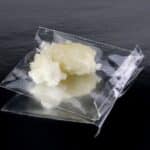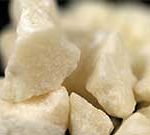Cocaine is an illicit drug that can come in the form of powder or rock, also known as crack cocaine. While crack cocaine is generally smoked, it can be consumed via intravenous injection.
To be injected, the crack must be transformed into a soluble form. Crack can be dissolved by using:
- lemon juice
- baking soda
- ascorbic acid
- citric acid
- vitamin C
Once dissolved, a needle is used to inject the crack cocaine into a vein of the body. This causes a person to experience a rush of euphoria, or “high.”
Effects Of Injecting Crack Cocaine
Crack use can cause a number of side effects, regardless of the method of administration. According to the National Institute on Drug Abuse, short-term effects may include:
- erratic behavior
- paranoia
- panic anxiety
- vertigo
- extreme tremors
- increased blood pressure
Long-term cocaine use may lead to the following effects:
- chronic cough
- neurological effects
- chest pain
- headaches
- kidney damage
- abscesses at the injection site
- seizures
- strokes
- nausea
Dangers Of Injecting Crack Cocaine
On top of these serious side effects caused by crack cocaine, there are other dangers of abusing the drug, including engaging in high-risk behaviors such as unprotected sex.
Sharing Needles
Injecting cocaine can lead to risky behaviors such as sharing needles, a public health issue that has prompted the need for needle exchange programs and other interventions.
Sharing needles can increase the risk of developing:
- hepatitis C
- hepatitis B
- HIV/AIDS
- vein damage
- collapsed blood vessels
Crack Cocaine Overdose
Those who inject cocaine chronically have a risk of overdose and severe cocaine intoxication. When cocaine is injected into neck veins, serious conditions such as myositis, thrombophlebitis, and pneumothorax can develop.
Blood vessels may rupture and the risk of cardiac arrest may occur. Confusion, tremors, and sweating are common symptoms of cocaine overdose.
Cocaine Withdrawal
The withdrawal one may experience from chronic cocaine use may be severe. According to the National Institutes of Health (NIH), withdrawal symptoms can consist of:
- depression
- nightmares
- agitation
- fatigue
- paranoia
- anxiety
Polydrug Abuse
The injection of crack cocaine is a severe form of drug use, and many will engage in other methods such as snorting or smoking crack.
Using drugs in a variety of ways can lead to polysubstance abuse, or using cocaine with other substances. One such combination involves mixing cocaine with heroin, an opioid. This process is known as “speedballing” and is particularly dangerous.
Crack Cocaine Addiction Treatment
If you or a loved one are struggling with drug use, allow us to assist you with your healthcare needs and help you on your journey to recovery.
Substance abuse treatment for cocaine addiction can include motivational interviewing, cognitive behavioral therapy, group therapy, and detox support services.
To learn more about our outpatient services, including intensive outpatient programs, please contact Northeast Addictions Treatment Center today.
Sources
Written by
Northeast Addition Editorial Team
©2024 Northeast Addition Center | All Rights Reserved
This page does not provide medical advice.





